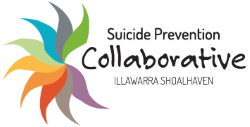People living with mental illness are more likely to die by suicide than the general population. Although not all people who die by suicide have a mental health problem, and not all people with mental illness are affected by suicidal behaviour, access to excellent mental health care is an important strategy for suicide prevention.
According to Adam McRae, the Suicide Prevention Team Leader at Grand Pacific Health, it’s important that people know that psychological support, also known as ‘talking therapies’, is effective in reducing suicidality.
"Psychological treatments can help change habits in the way we think and cope with life's challenges. As well as supporting your recovery, talking therapies can also help people stay well by helping them to address unhelpful thoughts and behaviour," said Mr McRae.
There are several types of effective psychological treatments available, as well as different delivery options. Some people prefer to work one-on-one with a professional, while others get more out of a group environment. A growing number of online programs, or e-therapies, are also available.
"People may lead busy lives with work and family commitments so many psychologists now offer extended or after hour appointments, allowing people to book in at a time that suits them best," said Mr McRae.
"Medicare benefits are also available for a range of psychological services. This means that if a person has a referral from their GP, some of the sessions with a psychologist can be covered under Medicare, making them free or relatively low cost."
The Illawarra Shoalhaven Suicide Prevention Collaborative encourages people who are struggling to take control of their mental health, just as they would if they had a physical health issue.
"Your doctor is often a good place to start for most mental health conditions. Doctors can provide you with treatment, support and ongoing care, or refer you to other mental health services, if required.
"Whilst you are seeking help, it is also important to try to keep healthy and connected to those around you. You might like to take a family member or close friend along for support; they can also help explain your situation to the doctor, and they can help remember the discussions you had," said Mr McRae.
If you or someone you know needs support now, please call Lifeline 24/7 on 13 11 14.
Click here for a full list of support services available.
If you or someone you know needs support now, please call Lifeline 24/7 on 13 11 14 or click here to view other support services.
